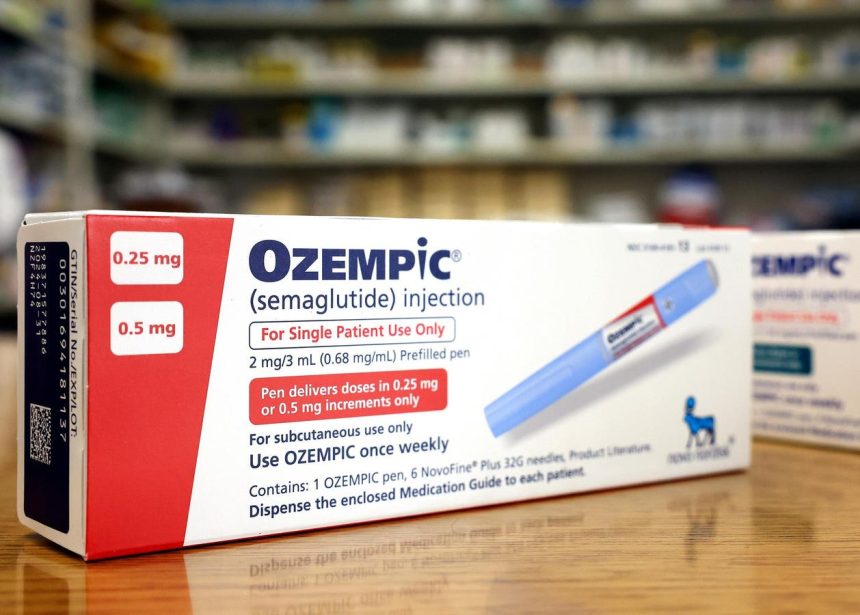Medicare expects it will spend more $550 million this year for the controversial anti-Alzheimer’s drug Leqembi and predicts the cost will skyrocket to $3.5 billion in 2025, according to Stat News. The program spent $5.7 billion on drugs such as Ozempic and Mounjaro in 2022, according to the Kaiser Family Foundation. These GLP-1 medications were designed to treat type 2 diabetes but increasingly have been used by those without the condition to lose weight.
And these costs are likely to skyrocket in coming years. Medicare has agreed to loosen its rules for paying for some GLP-1 drugs if a patient is at risk for heart disease. And while concerns about benefits and risks have slowed take-up of Leqembi, aggressive marketing combined with efforts to vastly expand the number of Americans diagnosed with Alzheimer’s disease could substantially boost demand for it and similar monoclonal anti-body drugs.
$10 Billion Annually
Add it all up, and Medicare soon will spend in excess of $10 billion on just a handful of medications. Ultimately, either taxpayers or beneficiaries, who will pay higher premiums, will foot the bill.
We’ve already seen how. In 2021, Medicare raised Part B premiums by an unusually steep 15%, largely due to the anticipated roll-out of the anti-Alzheimer’s drug Aduhelm. After Medicare decided that in most cases it would not pay for the drug, it reduced its Part B premium.
Medicare costs for Leqembi, which is priced at $26,500 annually, will range from about $2.7 billion if it is taken by 1.5% of those eligible to take the drug to nearly $18 billion if 10% do, according to the independent policy research group KFF.
But two initiatives could substantially increase those costs, at little benefit and some risk to many patients.
More Diagnoses
First, the Alzheimer’s Association is moving aggressively to expand the number of people diagnosed with the disease. They’d include people with high levels of certain proteins in their brains, even if they have no symptoms of the disease. This could increase by 3 million the number of people diagnosed with Alzheimer’s, thus potentially making them eligible for these new drug therapies. And further boosting Medicare costs.
These new standards are troublesome because of the tenuous link between buildup of the protein, called Amyloid beta, and future Alzheimer’s symptoms. The presence of these biomarkers does increase the risk of Alzheimer’s disease. But while most of those with mild cognitive impairment are found to have the protein, as many as 30 percent do not. Similarly, many older adults with high levels of Amyloid beta never will have memory loss or other symptoms.
Despite these shortcomings, blood tests that measure Amyloid beta or a related protein called tau are coming on the market. However, while these tests may be able to identify these biomarkers, they cannot diagnose Alzheimer’s.
Nonetheless, a broad new definition of Alzheimer’s combined with newly available tests for the biomarkers are certain to boost patient demand for the newly emerging drugs.
An Echo Of The Past
In some ways, this pre-Alzheimer’s diagnosis echoes past experience with pre-diabetes.
For more than four decades, physicians have been diagnosing pre-diabetes, a condition where glucose is higher than normal below the levels of Type 2 diabetes.
But, especially among older adults, a pre-diabetes diagnosis is only a crude indicator of future Type 2 diabetes.
A 2021 study published in JAMA Internal Medicine found between 29% and 73% of older adults had high glucose levels, depending on the test used. Yet, the six-year study of 3,400 older adults found that between only about 9% and 17% of those with pre-diabetes glucose levels ever progressed to clinical diabetes.
No matter. An increase in pre-diabetes diagnoses very likely drove up the number of patients taking weight loss drugs such as Ozempic.
Here’s why: These drugs cost as much as $11,000 annually, before rebates. While Medicare is prohibited from paying for weight loss medicine, it can pay for drugs used to treat diabetes (that, incidentally, help you lose weight).
You know where this is going. Patients who really want these drugs off-label for weight loss are being diagnosed with pre-diabetes so Medicare will pick up the tab. The same may now happen with heart disease.
Benefits To Testing, But…
There may be important benefits to early testing. Early diagnosis of troubling glucose levels can signal that patients should change diet or increase exercise to stave off serious disease. Early evidence of high cholesterol can lower the risk for heart disease or stroke. Similarly, tests may find very early, pre-symptomatic cancers that can be more easily treated.
But pre-diabetes and pre-Alzheimer’s are different because, at least today, most tests are uncertain indicators of future disease.
Alzheimer’s drugs remain problematic. The diabetes/weight loss drugs may have real benefits, though we don’t yet know about their long-term effects. Yet, it doesn’t take a cynic to believe that some of the motivation for early diagnosis is driven by money, especially when the link between test results and serious disease is so tenuous. And the price will be paid by Medicare beneficiaries and taxpayers.
Read the full article here
















